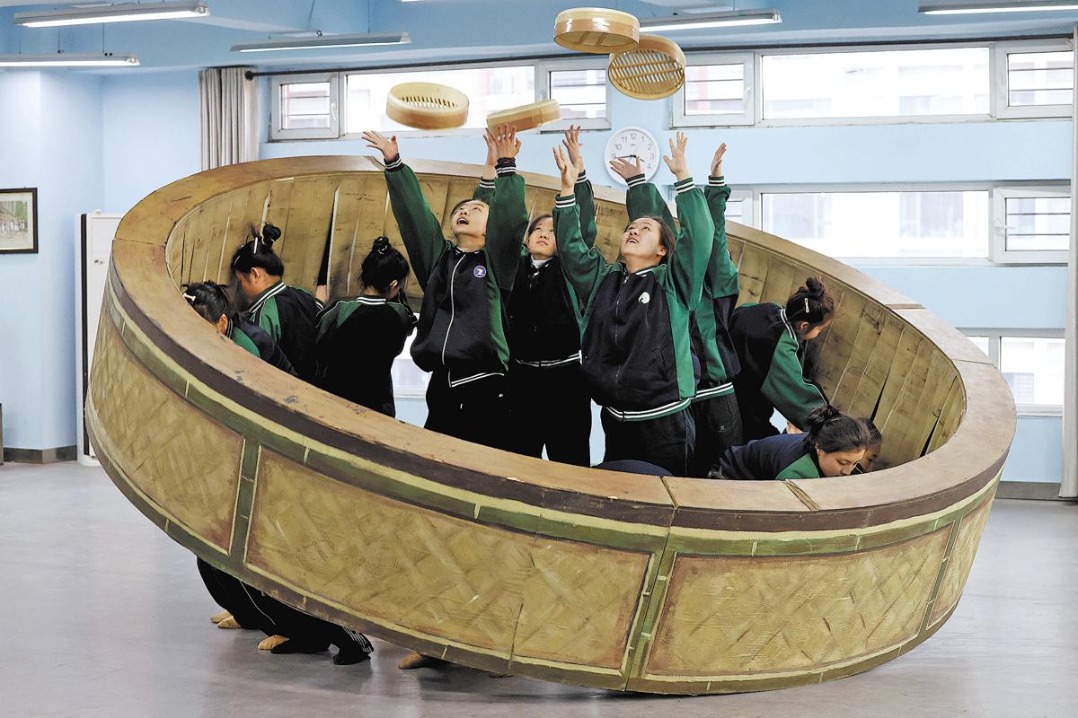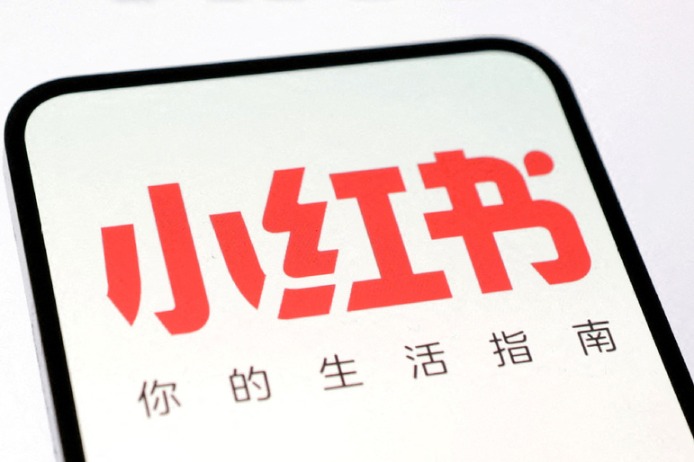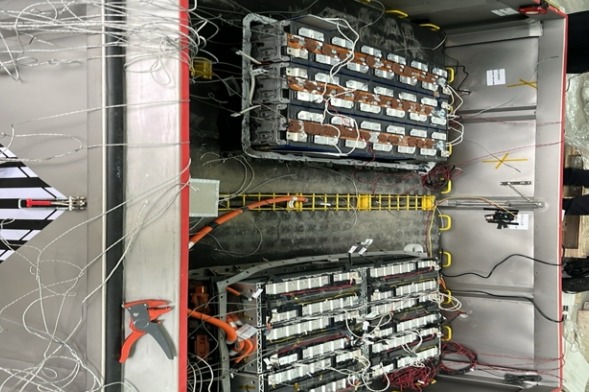Investing in sports could be a game-changer

Kenneth Fok Kai-kong is working very hard to raise HK's standing as an evolved center of sporting excellence. He tells Willa Wu there is much to be gained by cooperating with the Chinese mainland to achieve that end.
Hong Kong has entered a new era in its expansion as a major sporting city, capable of holding big-time, world-class events, says Kenneth Fok Kai-kong, vice-president of the city's Sports Federation and Olympic Committee. He's referring to the planned Kai Tak Sports Park; the Legislative Council Finance Committee approved HK$31.9 billion in funding for the project on June 23.
The go-ahead appears to be an answer to prayers sent out by members of the city's sports community who have for a long time urged the city's government to build a world-class, large sports facility. At the moment, the city's largest outdoor multi-purpose recreation and sports venue is Hong Kong Stadium, with maximum seating capacity of 40,000. The new Kai Tak Sports Park, when ready to use, will have a 50,000-seat outdoor stadium, a 5,000-seat stadium and a 10,000-seat indoor arena. The project is expected to be completed by 2022.
Building a facility on a par with international standards is only one target in Hong Kong's bid to become a world-class sporting hub. Once the city has a halfway decent sports venue, a well-considered program will have to be drafted to make optimum use of the facility. It will take serious planning and collective efforts of the city's business and education communities, says Fok.

It also means the public has to support this bold venture, he adds. The public should start looking beyond medals and realize the roles sportspeople play in building the community spirit, Fok says. He has urged the people of Hong Kong to find out more about the personal struggles and rigors the star athletes have invariably been through during their formative years, and get a better understanding of them.
Fok looked after Hong Kong's team at last year's Rio de Janeiro Olympics. This was the first time he led a team to a major sporting extravaganza.
"The only goal I set for myself was to provide a safe and care-free environment for our athletes. I didn't want any trifling thing to disturb them, causing the efforts they put in for the Olympics to end in vain," Fok said.
He handled organizing the daily commutes, assigning medical staff, acting as liaison with related organizations and listening to the athletes' feedback on facilities they used. It was a test of patience as much as it was time-consuming.
"It is like crossing the river by feeling the stones," Fok says, "fortunately, the trip went smoothly."
Asked how he assessed his performance at the Rio Games, Fok, clad in a tailored black suit, says, modestly: "Let the athletes do the evaluation."
The Rio Games stirred mixed feelings in most Hong Kong people. Hong Kong athletes came home without winning a medal.
Hong Kong's best medal hope, the cyclist Sarah Lee Wai-sze who won a bronze at the 2012 London Olympics, crashed out of the women's keirin semi-final event.
Fok saw her fall. His shock was matched only by anxiety. "I would be lying if I say I was not disappointed. That changed to admiration when I saw her in another race," Fok says.
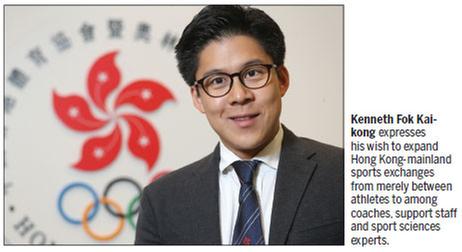
Lee competed in the round of eight in the women's sprint. She was up against Australia's six-time Olympic medalist Anna Meares - the one who bumped her out of the keirin semis. Hong Kong media called it a "revenge match". Lee beat the Australian, then went over and shook hands with Meares. The pair cycled hand in hand around the track, smiling up at the crowd.
Fok says he finds it hard to describe his feelings at that moment and even now when he re-visits it. "That's real Olympic spirit."
"Our athletes are fine. Many of them achieved their personal best. Some even broke Hong Kong's Olympic records. But most people care only about winning medals," Fok notes.
Achievements versus medals
Hong Kong fielded 38 athletes to the Rio Games, including 26 first-time participants. Swimmer Siobhan Bernadette Haughey made the semi-final in the women's 200 meters free-style. Fencers Cheung Ka-long and Kong Man-wai made the top 16. In both cases they had improved on earlier achievements by Hong Kong athletes in those categories in the Olympics.
So far Hong Kong has won three Olympic medals - a gold in 1996 by windsurfer Lee Lai-shan, a silver by Li Ching and Ko Lai-chak in 2004 in table tennis doubles, and a bronze in 2012 by cyclist Lee. In the Asian Games held after the city's return to the motherland, Hong Kong has claimed 29 gold medals, taking leading roles in windsurfing and cycling.
"Many hold that Hong Kong's traditional strongholds are windsurfing, table tennis and cycling," says Fok, adding sportspeople from the city are increasingly venturing into newer areas and finding success in those.
He cites several examples: 26-year-old Ng On-yee sets off a snooker craze by winning four world championships last year; "Wonder Kid" Rex Tso Sing-yu boasts a 21-match winning streak in his professional boxing career; and 20-year-old fencer Cheung became Hong Kong's first gold medalist in the Asian Fencing Championships last year.
Sporting family
Fok grew up in a family with a long tradition in sports. His late grandfather Henry Fok Ying-tung loved football, and helped China to enter Olympic competition in the 1970s. Kenneth's father Timothy heads the Hong Kong Olympic Committee and the Hong Kong Football Association.
Today Kenneth Fok is vice-president of the Sports Federation and Olympic Committee of Hong Kong. He's also a member of the Hong Kong government's Commission on Youth.
His sole sport is running
Running is an ideal sport for someone on a very tight schedule such as himself, says Fok. "You can exercise and think at the same time. Most importantly, running can be a solitary passion." He goes running three times a week, shoehorned into a full calendar.
As a spectator, he prefers table tennis and badminton.
"What about diving?" This question is obvious. Fok married Guo Jingjing, the Chinese Olympic diving queen in 2012. "Of course," he replies. "But to be frank, I started to appreciate it only after having a crush on my (future) wife," he says, grinning.
Cross-boundary exchange
Sports development in Hong Kong is "fruitful and thriving", Fok observes. Having been an active member of the city's sports community since 2009, he attributes some of this growth to Hong Kong's ties with the mainland. In recent years, more and more Hong Kong athletes train on the mainland. For example, Olympic medalist Lee trains on the mainland nine months a year. The gymnast Shek Wai-hung went through a nine-month training program with the national team in Beijing before he won a gold medal in the Incheon Asian Games.
Fok credits the Hong Kong government's efforts towards developing the city's sports scene. In 2012 a HK$7 billion Elite Athletes Development Fund was created. This year the government topped up the fund with a further HK$1 billion.
Fok thinks Hong Kong still has much potential left to be explored in developing cross-boundary exchanges with the mainland towards giving local athletes an edge and improving the sports scene in general.
"The exchange scale is not high enough," Fok notes. "I hope in the future the exchange will not be limited to just athletes. The mainland has many veteran coaches and support staff while Hong Kong enjoys a great pool of advanced sports-science experts and analysis facilities. I think Hong Kong and the mainland should consider having exchanges on respective advantages," he says.
The road ahead
"Continuous financial support is vital in training athletes and attracting new blood to the industry. We all know the government has limited resources," says Fok, adding a sports lottery sponsored by corporate giants might be a good way to achieve stable capital flow.
Fok also reveals that Chief Executive-designate Carrie Lam Cheng Yuet-ngor favors encouraging the business sector to contribute more to sports development.
He calls for more universities to arrange courses to accommodate athletes' training schedules. The Chinese University of Hong Kong and the Hong Kong Baptist University already have signed Memoranda of Understanding supporting the Elite Athletes Study Programme with the Hong Kong Sports Institute. The program has an important purpose, to foster dual pathways for elite athletes so they can take up careers after retiring from sports.
"If parents are assured their children are offered education needed for future employment, they will become more willing to let their children train full-time and professionally," Fok explains.
"I appreciated the time working side-by-side with athletes in Rio. They taught me that the process is as important as the result," Fok adds.
Looking forward, Fok says he's confident about the future of sports in Hong Kong. At the end of the day: "The city enjoys an advantageous geographical location, great support from Hong Kong government and central government authorities, and promising young athletes."
Contact the writer at
willa@chinadailyhk.com
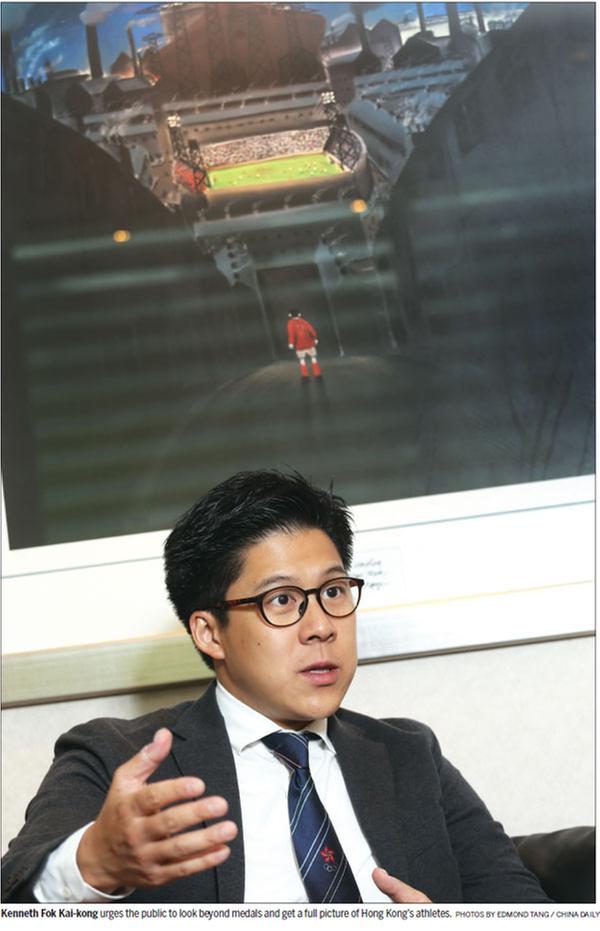
(HK Edition 06/30/2017 page5)
Today's Top News
- Policy paper on Latin America and Caribbean unveiled
- IMF: China's resilience will be sustained
- Optimization of educational assets stressed
- China-Russia joint air patrol shows resolve to maintain peace, stability
- Group of Friends initiated to boost global governance
- IMF revises up China growth forecast for 2025 on policy support




















